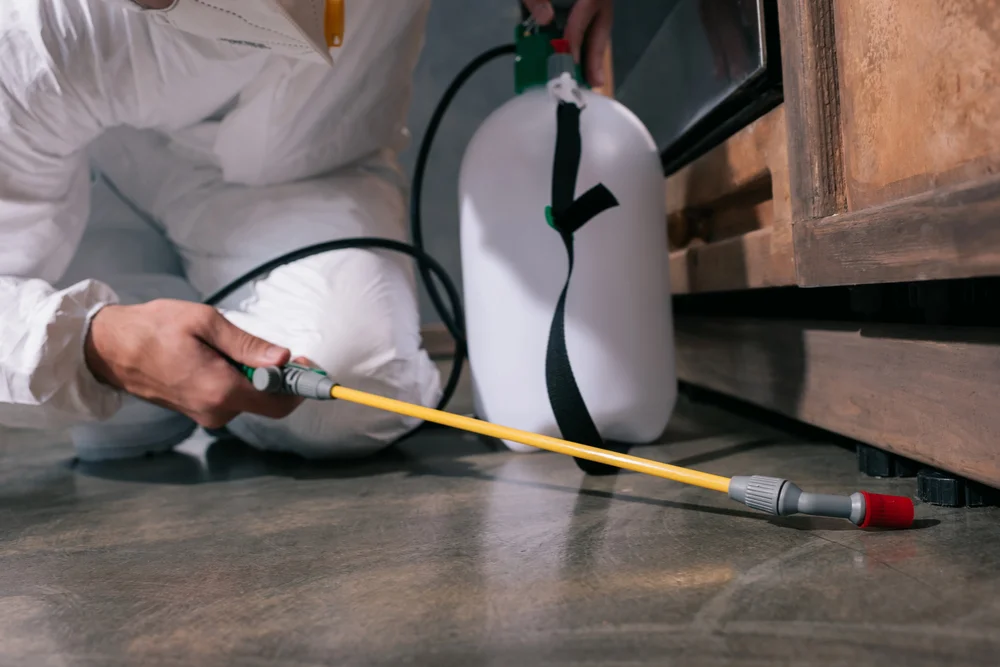If you’re running a pest control business or thinking of starting one, there’s one simple question that you can’t afford to ignore: do pest control companies need to be licensed?
The short answer is yes, but the long answer is where things get interesting (and, in some cases, a little bureaucratic).
Licensing is more than just fulfilling a legal requirement or checking an administrative checkbox, but is also about demonstrating that you know what you’re doing and that you’re operating responsibly.
Let’s break it all down, step by step, without boring you to death with legal jargon.
Do Pest Control Companies Need to Be Licensed? The Short Legal Answer

Yes, pest control companies need to be licensed, and this isn’t optional. The rules exist for a reason.
When your job involves handling chemicals and dealing with infestations, the stakes are high. A slip-up could harm public health, damage property, or even the environment. That’s why state and federal governments step in with licensing requirements.
Where it gets confusing, however, is that not all licenses are the same across states. Each state’s laws dictate what licensing you need, with specific conditions based on the type of pests you handle and the chemicals you use. It’s a game of regulations, and you’ll want to know the rules before you play.
Why Does Licensing Matter for Pest Control Pros?

Licensing isn’t just some red tape designed to give you a headache. It serves practical purposes that go beyond showing off a fancy certificate on your office wall.
Here’s why it’s important:
- Law and Order: Licensing guarantees you’re operating within the legal bounds. Without the proper license, your business runs the risk of fines, lawsuits, and shutdowns.
- Credibility: When customers see you have a license, they know they’re dealing with a pro—not someone who set up shop yesterday armed with nothing but a Google search on “how to kill ants.”
- Safety First: Pest control involves using chemicals that could be dangerous if they’re mishandled. Licensing ensures that you and your team understand how to handle these substances without causing harm.
- Insurance Compliance: Many insurance providers require businesses to hold a valid license before granting coverage. Without insurance, you’re exposed to massive financial risks, and that’s something nobody wants to deal with.
What Types of Licenses Are Out There?
Here’s where it gets specific (but don’t zone out just yet). There are different types of licenses, depending on what your pest control business does. Knowing which one you need is key.
1. Business License
This one’s non-negotiable. Nearly every state requires businesses to register before operations can begin. For pest control, this means registering as a business entity in your state and making sure you check off additional requirements tied to pest control services.
2. Pesticide Applicator License
Are you using pesticides? Then you need more than just a general business license. Most states split this license into two categories:
- Private Applicator License: For businesses dealing with non-commercial pest control, think farms treating their own property.
- Commercial Applicator License: This is the license your business likely needs if you’re providing services to paying customers.
3. Worker Certifications
Some states require individual employees to be certified or licensed, especially if they’re applying pesticides or working in specialized areas like termite control. You may also need ongoing training for these certifications to stay valid.
4. Specialized Licenses for Specific Pests
Planning to tackle termites? Or maybe rodents? You’ll need additional documentation for these services in many states. These specialized licenses account for the health and safety concerns tied to specific types of pests.
How to Get Licensed
You know you need a license. But how do you actually get it? Thankfully, it’s not rocket science, but you do need to jump through some hoops.
Research Your State’s Requirements
Every state has its own licensing body for pest control. Some examples include the Structural Pest Control Board (SPCB) in California or the Department of Agriculture in many other states. Check their websites for a breakdown of requirements.
Complete Training or Education
Most licensing boards require you to complete a training program or pass written exams that cover everything from safety protocols to pest biology.
Register Your Business
Before applying for a pest control license, your business must be properly registered in your state. This will help you make sure you’re listed as a legitimate entity.
Submit an Application
Once you’ve checked all the boxes, gather your documents and submit a licensing application. Depending on the license, you might be required to provide proof of training, insurance, or bonding.
Stay Up to Date
Many licenses require annual renewal or continuing education. Don’t skip this step! Operating on an expired license spells big trouble for your business.
The Cost of Being Licensed

Now, you’re probably wondering about the cost.
Licensing fees vary by state and type of license but typically range between $75 and $400. Throw in training expenses, exams, and potential additional certifications, and you’re looking at around $1,000 annually depending on your business size.
This all might feel like a lot at first. But ask yourself this—is avoiding licensing really worth risking your business’s future? The answer is almost certainly no.
Skipping licensing isn’t just risky. It’s almost guaranteed to backfire. Penalties can include hefty fines, lawsuits from unhappy (or poisoned) customers, and even criminal charges in extreme cases. Did we mention that getting caught operating without a license might land your business on a public database? That’s not a good look for anyone.
And don’t think you’ll fly under the radar. Unlicensed activity is actively monitored by regulatory boards, and your competitors are more than happy to report violations. No one wants to lose out to an unlicensed operation cutting corners.
Don’t Cut Corners With Your Pest Control Business
Do pest control companies need to be licensed? Absolutely. Without a license, your business isn’t just illegal, it’s at risk of fines, lawsuits, and irreparable reputation damage.
Licensing might feel like a headache at first glance, but it’s actually an investment in your business. It’s what separates the amateurs from the pros. It shows your customers you’re serious, keeps you compliant, and protects your future.
If you’re ready to take the plunge into licensing (or need to renew your existing one), make it a priority today. Your business’s success depends on it, and trust us, it’s worth the effort.
And once your business is up and running (and you’re ready to start booking clients!), give IronChess SEO a call. We specialize in pest control marketing for businesses just like yours, and we’ll make sure you’re getting in front of all the right eyes.


